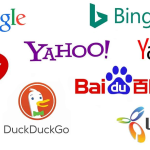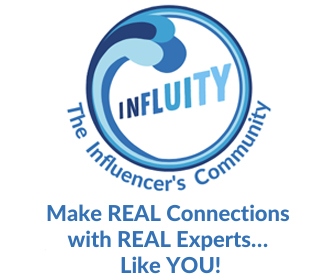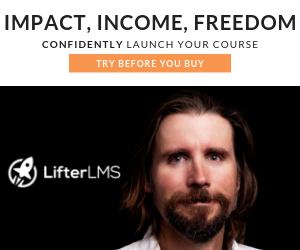So many factors go
into having a successful writing career – timing, luck, great books, level of
competition, your endurance, and persistence. But the first place to start is
with you. If you believe in yourself as a writer and know that you have a quality
book that should appeal to a decent-sized readership, then you are already on
the road to success.
The next step is
to put on your thinking cap to begin to filter your thoughts through an
entrepreneurial prism. To get your book sold you will have to think of the
obvious and follow through to grab all of the low-hanging fruit. But you also
have to think of what is not so obvious or so easily obtained and to take steps
toward achieving them.
Many writers are
not good business people, which is only natural. The more you’re good at one
thing it means you’re not as good at something else. It seems that being a poet
is almost counter to being an entrepreneur – one uses an economy of words to
describe dreams, feelings, thoughts, and emotions. Meaningful things. The other
uses any means necessary to get what he or she wants to sell a good or service
regardless of its merit.
In book marketing,
the purpose is not the journey, but the end result: to make a sale. Writers are
givers; marketers are takers. But such a white hat – black hat line must not be
drawn here. It is certainly acceptable to be creative and wealthy, to use your
brain to tap into your thoughts and express them with words, while using
another part of your brain to exploit marketplace opportunities for your own
profits.
A book can be
wonderfully written, but if others don’t know about it, they won’t buy it. So,
get out there and sell it! If a book is not so good, that does not negate your
right to sell it as if it were a great book. Your readers will eventually
decide what value they derive from your book.
Consumers buy on
perceptions and anticipation. They don’t read it and then pay for it. They are
told what they can expect to get out of a book and then they buy it based on
other factors: competition, price, title, an author’s credentials, a book’s
cover, the layout, recommendations, convenience, availability and dozens of
other considerations. Your job is to let as many members of your targeted
readership know the book exists and to make the case that it merits their
investment of money and time.
I have worked with
authors for 30 years and many seem to fall into two categories. They are either
ego-driven or they are not. Those that are ego-driven often suffer from high
expectations and often are not willing to do the hands-on work to get their
book to sell the way they envision it will.
Those with no ego
sometimes go to the other extreme, where they lack confidence in their own book’s
ability to sell, and they too do not do enough to ensure that their book
surpasses the lowly fate they envisioned. Long story short, most people create
self-fulfilling prophecies. It is up to you to make good things happen.
It starts with
your mindset. Park your ego, insecurities, greed or dreams at the door. Just
accept the fact the marketplace has a lot of competition but also a lot of
opportunity. Assume your book is great and act as if it is. Don’t sell it short
because if you don’t act as if it is terrific, others will sense this from you
and come to see your book as ordinary or sub-par. How many commercials do you
see that hype “average,” “ordinary,” or “run of the mill”? None of them will
put such a tag on their stuff.
The
entrepreneurial mindset, however, does not require you to lie, break laws or
act unethically. But it means you put on the hat of salesperson, not book
critic. You sell your book and yourself by going all out, 24-7, always thinking
like a marketer. You begin to see an opportunity in everything you do, everyone
you meet, and in every venue that you happen upon. You generate more ideas than
you can record. You begin having conversations
with friends, family, co-workers or strangers that inevitably lead to your
book. You walk around as if wearing specially coded glasses that allow you to
see sales opportunities everywhere. You begin to see yourself as a brand, an
entity, one that needs to project a certain image, feel, sound, and style.
Your face is your
logo, your words are your assets, and your book title is your tag line. No
reason to be shy. There is no benefit in silence when it comes to sales.
Trumpet your own horn and do it without doubt, guilt or reservation.
There are numerous
books that cover the area of positive thinking, optimism, and a good attitude
and I implore you to read them, for you won’t get far in life without embracing
a positive approach. Try these classics:
- The
Power of Positive Thinking by Norman Vincent Peale - Think
& Grow Rich
by Dale Carnegie - As
A Man Thinketh
by James Allen - Awakening
The Giant Within
by Anthony Robinson - The
7 Habits of Highly Successful People by Stephen Covey
Every generation –
actually every year – features best-selling books that cover the same topic of
motivation and inspiration. It has been written about, over and over, because
so many people need a reminder. They need to hear it 50 different ways.
Of
course, it all boils down to believing in yourself, having conviction,
possessing confidence, having an undying spirit, and finding a way to get what
you want. Even children’s fables cover the topic, telling us to always smile,
laugh, try our best, not to give up hope, to always feel like a winner, and to
do the things we enjoy. All of that can and should be applied to selling your
book.
Need PR Help?
Brian
Feinblum, the founder of this award-winning blog, with over 3.9 million page
views, can be reached at [email protected] He is available to help authors promote their story,
sell their book, and grow their brand. He has over 30 years of experience in
successfully helping thousands of authors in all genres. Let him be your
advocate, teacher, and motivator!
About Brian
Feinblum
Brian Feinblum should be
followed on www.linkedin.com/in/brianfeinblum. This is
copyrighted by BookMarketingBuzzBlog ©2024. Born and raised in Brooklyn, he now
resides in Westchester with his wife, two kids, and Ferris, a black lab rescue
dog, and El Chapo, a pug rescue dog. His writings are often featured in The
Writer and IBPA’s The Independent. This
award-winning blog has generated over 3.9 million pageviews. With 4,900+ posts
over the past dozen years, it was named one of the best book marketing blogs by
BookBaby http://blog.bookbaby.com/2013/09/the-best-book-marketing-blogs and recognized by Feedspot in 2021 and 2018
as one of the top book marketing blogs. It was also named by
www.WinningWriters.com as a “best resource.” For the past three decades,
including 21 years as the head of marketing for the nation’s largest book
publicity firm, and director of publicity positions at two independent presses,
Brian has worked with many first-time, self-published, authors of all genres,
right along with best-selling authors and celebrities such as: Dr. Ruth, Mark
Victor Hansen, Joseph Finder, Katherine Spurway, Neil Rackham, Harvey Mackay,
Ken Blanchard, Stephen Covey, Warren Adler, Cindy Adams, Todd Duncan, Susan
RoAne, John C. Maxwell, Jeff Foxworthy, Seth Godin, and Henry Winkler. He
hosted a panel on book publicity for Book Expo America several years ago, and
has spoken at ASJA, BookCAMP, Independent Book Publishers Association Sarah
Lawrence College, Nonfiction Writers Association, Cape Cod Writers Association,
Willamette (Portland) Writers Association, APEX, Morgan James Publishing, and
Connecticut Authors and Publishers Association. His letters-to-the-editor have
been published in The Wall Street Journal, USA Today, New York Post, NY
Daily News, Newsday, The Journal News (Westchester) and The Washington
Post. His first published book was The Florida Homeowner, Condo, &
Co-Op Association Handbook. It was featured
in The Sun Sentinel and Miami Herald.














